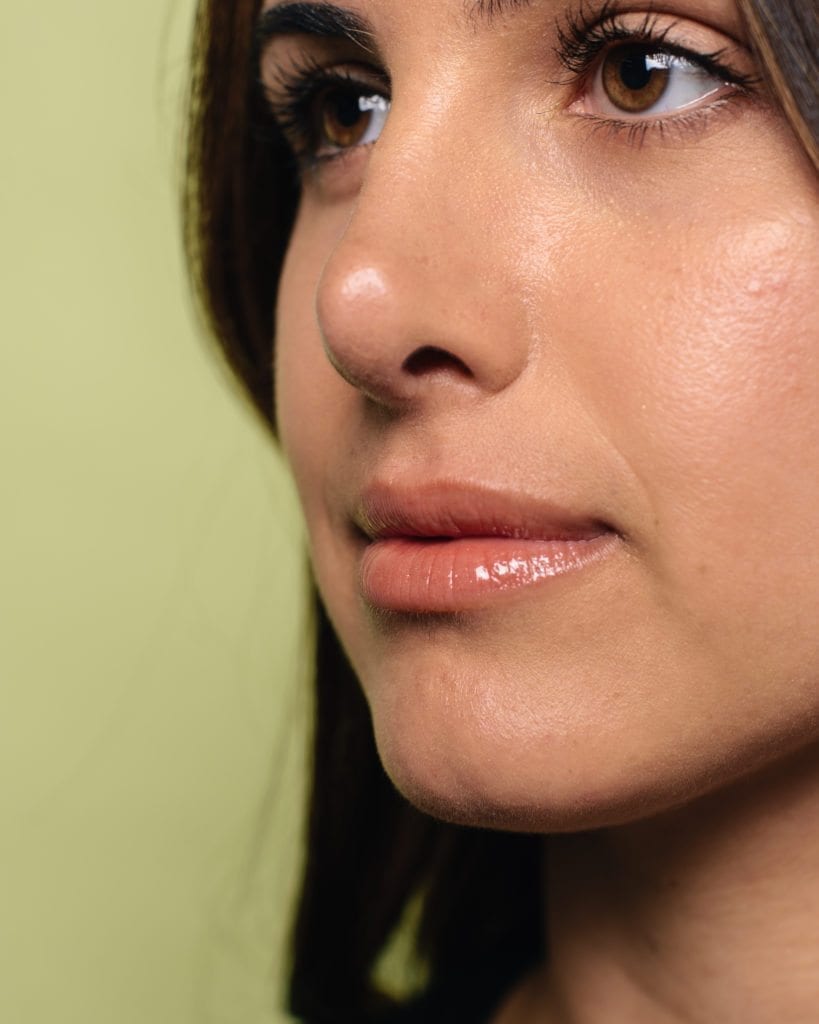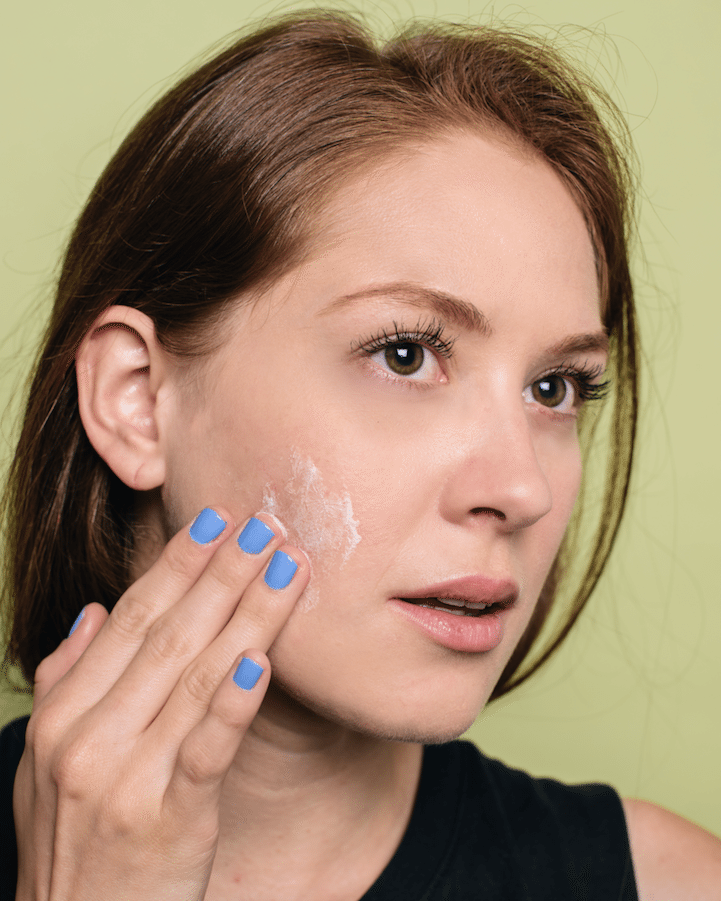What is a wrinkle?
A wrinkle is an indentation of the skin or shallow or deep set lines caused by aging. Wrinkles usually go hand in hand with sagging skin. While we cannot stop the clock on aging, there are many precautions that can slow it down.
 ‘Development of facial wrinkles is a kind of fibrosis of the skin. Misrepair-accumulation aging theory suggests that wrinkles develop from incorrect repairs of injured elastic fibers and collagen fibers. Repeated extensions and compressions of the skin cause repeated injuries of extracellular fibers in derma. During the repairing process, some of the broken elastic fibers and collagen fibers are not regenerated and restored but replaced by altered fibers. When an elastic fiber is broken in an extended state, it may be replaced by a “long” collagen fiber. Accumulation of “long” collagen fibers makes part of the skin looser and stiffer, and as a consequence, a big fold of skin appears. When a “long” collagen is broken in a compressed state, it may be replaced by a “short” collagen fiber. The “shorter” collagen fibers will restrict the extension of “longer” fibers, and make the “long” fibers in a folding state permanently. A small fold, namely a permanent wrinkle, then appears’
‘Development of facial wrinkles is a kind of fibrosis of the skin. Misrepair-accumulation aging theory suggests that wrinkles develop from incorrect repairs of injured elastic fibers and collagen fibers. Repeated extensions and compressions of the skin cause repeated injuries of extracellular fibers in derma. During the repairing process, some of the broken elastic fibers and collagen fibers are not regenerated and restored but replaced by altered fibers. When an elastic fiber is broken in an extended state, it may be replaced by a “long” collagen fiber. Accumulation of “long” collagen fibers makes part of the skin looser and stiffer, and as a consequence, a big fold of skin appears. When a “long” collagen is broken in a compressed state, it may be replaced by a “short” collagen fiber. The “shorter” collagen fibers will restrict the extension of “longer” fibers, and make the “long” fibers in a folding state permanently. A small fold, namely a permanent wrinkle, then appears’
https://en.wikipedia.org/wiki/Wrinkle
Wrinkles can be caused by internal and external factors. Wrinkles form at the dermis and epidermis levels of the skin. The visual appearance of this is dependent on which layer the wrinkle forms in. According to How Stuff Works, The sun is 90% responsible for wrinkles.
Understanding external and internal factors and how to avoid wrinkle formation and protect against premature aging:
Internal factors:
Smoking
Glycation (breakdown of collagen by ingested sugar)
Drinking excessive alcohol (causes glycation)
Genetic age (plays a role no matter how healthy you are)
Habitual facial muscles (expression lines)
External factors:
Sun
Smoking
Pollution
Improper skin care
The Do’s & Don’ts
DO
Wear sunscreen + hat + glasses
Exfoliate
Moisturize skin
Eat healthy, anti-oxidant rich foods + foods high in Omegas fatty acids
Take oral supplements
Use active anti-oxidant treatment products
See a Dermatologist
Use a retinol based product or natural derivative
Sleep on a silk pillowcase
Protect children from the Sun at a young age
DON’T
Get Sun exposure
Get Sun burned (50-80% of sun damage is from childhood burns)
Smoke
Drink excessive alcohol
Eat excessive sugar or fried
foods
Tug on facial skin
Little tips to consider:
Drinking from a straw may have a similar effect on the lips as smoking as far as developing little wrinkles.
Rubbing the under eye area with wipes of your finger can damage thin, delicate eye tissue. Try tapping eye product instead of rubbing.
Your skin type ca play a role in determining wrinkles also. Oily skin is less prone to wrinkles. As we age the loss of moisture, collagen and elastin causes sagging, loss of firmness and dryness.
Investing in a silk pillowcase will help skin stay hydrated. Cotton absorbs moisture and can suck the hydration right out of your skin as well as leave sleep wrinkle. You hair will thank you for the pillowcase too.

 The process of exfoliation is a lot like peeling away the dry, outer skin of an onion to reveal the living layers beneath. Whether the exfoliation is done using mechanical abrasion or a controlled chemical reaction, removing dead and damaged skin cells on the surface allows the fresh new skin underneath to become visible. This newly exposed layer of skin feels much softer and smoother. Its surface reflects light better, making fine lines and other small imperfections harder to see. Age spots and other areas of unwanted pigmentation are less noticeable because the dead skin cells containing the pigment have been removed. Exfoliation unplugs clogged pores and allows for the release of natural skin oils. Regular exfoliation also helps to maintain open pores, decreases pore size, and minimizes many types of superficial scarring. In addition, removing the top layer of dead and damaged cells allows other health-promoting agents such as moisturizers, antioxidants, and collagen-boosting ingredients to better penetrate the skin and work more effectively.
The process of exfoliation is a lot like peeling away the dry, outer skin of an onion to reveal the living layers beneath. Whether the exfoliation is done using mechanical abrasion or a controlled chemical reaction, removing dead and damaged skin cells on the surface allows the fresh new skin underneath to become visible. This newly exposed layer of skin feels much softer and smoother. Its surface reflects light better, making fine lines and other small imperfections harder to see. Age spots and other areas of unwanted pigmentation are less noticeable because the dead skin cells containing the pigment have been removed. Exfoliation unplugs clogged pores and allows for the release of natural skin oils. Regular exfoliation also helps to maintain open pores, decreases pore size, and minimizes many types of superficial scarring. In addition, removing the top layer of dead and damaged cells allows other health-promoting agents such as moisturizers, antioxidants, and collagen-boosting ingredients to better penetrate the skin and work more effectively.